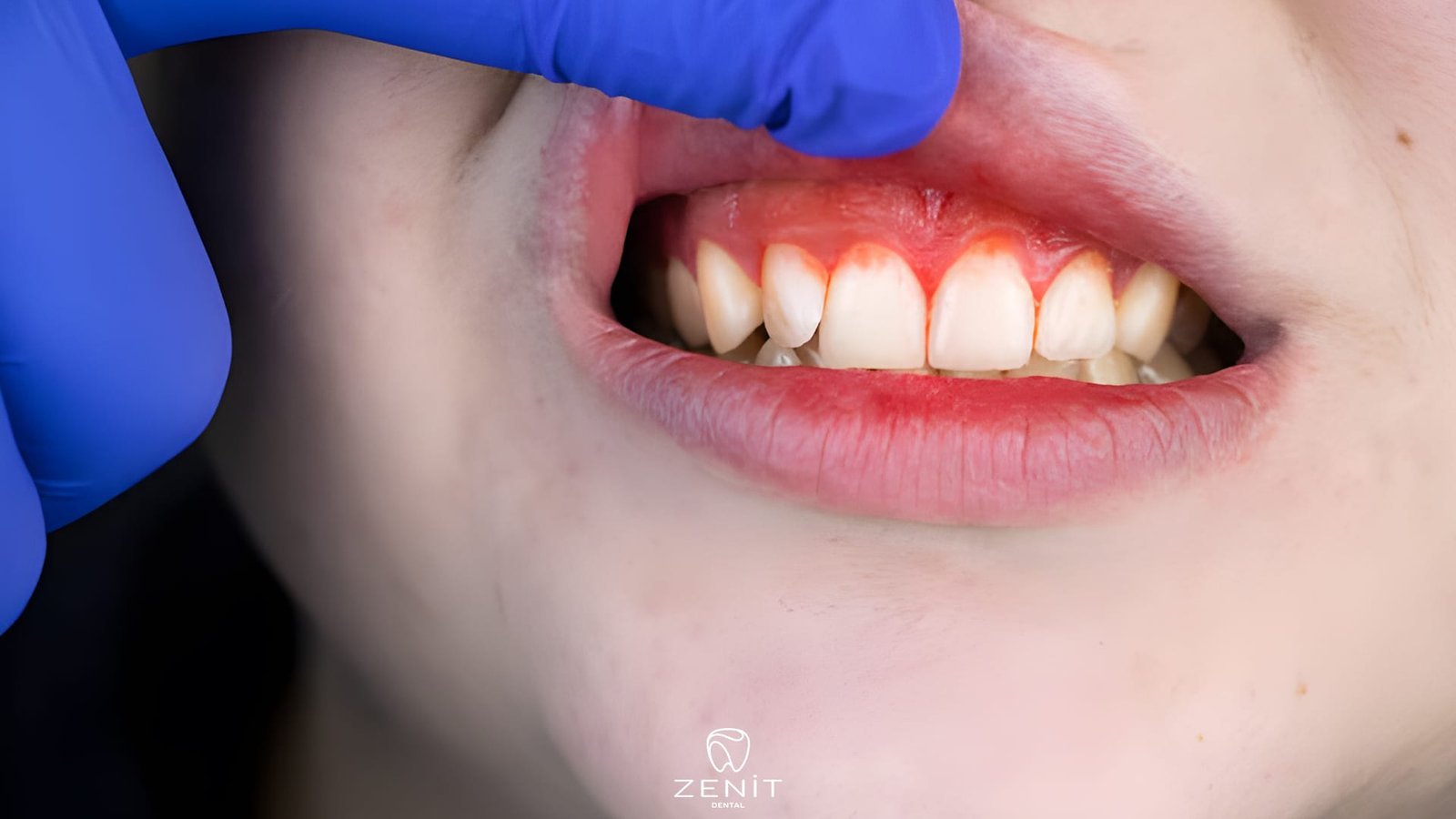How to Alleviate Toothache Caused by Inflammation
Causes of Dental Inflammation
Oral health is a significant factor that affects overall well-being, and inflammation in the teeth can disrupt this balance. Inflammation in the teeth can arise from various causes and, when neglected, can lead to serious problems. In this article, we will discuss why inflammation occurs in the teeth and effective ways to deal with this condition.
Accumulation of Plaque and Tartar:
The buildup of plaque and tartar in the oral cavity creates a foundation for bacterial formation, leading to inflammation in the gums. Plaque is a bacterial layer that accumulates on the surface of the teeth. If regular brushing and flossing are not performed, plaque can eventually turn into tartar. Tartar can create a gap between the gums and teeth, allowing bacteria to accumulate in this area.
Tooth Decay:
Tooth decay, characterized by cavities resulting from bacterial erosion of tooth enamel, is a common cause of dental inflammation. Untreated cavities allow bacteria to progress into the interior of the tooth, causing infection. If left untreated, infections that reach the tooth roots can lead to swelling and pain in the gums.
Gum Disorders:
Gum disorders can lead to inflammation in the gums. Gingivitis, marked by redness, swelling, and bleeding of the gums, is an early stage of gum disease. If left untreated, gingivitis can progress to a more severe condition known as periodontitis. Periodontitis can result in gum recession, jawbone loss, and loose teeth.
Systemic Health Issues:
Certain systemic health problems can impact oral health, contributing to gum inflammation. Conditions such as diabetes, immune system disorders, and heart diseases can increase the risk of gum infections.

Treatment Methods
- Regular Dental Care: Regular brushing, flossing, and mouthwash use help prevent the buildup of plaque and tartar, maintaining gum health.
- Dental Check-ups: Regular dental check-ups facilitate early detection of potential issues and assist in implementing preventive measures.
- Dental Cleaning and Professional Care: Dental cleaning and professional care performed by your dentist support gum health by removing accumulated plaque and tartar.
- Addressing Untreated Dental Issues: Cavities and other dental problems should be treated in a timely manner. Adhering to the treatment plan recommended by your dentist is crucial.
- Healthy Dietary Habits: Balanced nutrition strengthens the body’s immune system, enhancing resistance against gum inflammation.

Infected Toothache: Relief with Natural Methods
Infected toothache is typically a severe discomfort arising from gum infections. Such pains can negatively impact daily life and may lead to more serious problems if left untreated. However, you can alleviate infected toothache using natural methods.
Mild Saltwater Rinse
An effective way to deal with infected toothache is to regularly perform a mild saltwater rinse. This mixture, prepared by adding a teaspoon of salt to a cup of warm water, can help alleviate the pain by combating bacteria. Gargling with mild saltwater can also contribute to fighting infections by regulating the oral pH balance.
Ginger Tea
The natural anti-inflammatory properties of ginger can have a positive effect on inflamed gums. You can prepare ginger tea by adding a slice of fresh ginger or a teaspoon of powdered ginger to hot water and consume it regularly throughout the day. Ginger tea can soothe sore gums and, thanks to its antioxidant properties, support overall oral health.

Peppermint Oil
Peppermint oil possesses analgesic and anti-inflammatory properties. You can apply a few drops of peppermint oil to a cotton swab and gently apply it to the affected gum. However, avoid directly applying peppermint oil to the tooth, as it may harm the skin. Peppermint oil can also eliminate bad odors in the mouth, providing a fresh breath.
Clove Oil
Clove oil is known for its analgesic properties. By applying a few drops of clove oil to a cotton swab, you can gently massage your gums, helping to alleviate the pain. Clove oil, with its antibacterial properties, can be effective in combating oral bacteria.
Rinsing with Hydrogen Peroxide Solution
You can rinse your mouth with a solution created by adding a few drops of hydrogen peroxide to a cup of water. However, avoid excessive use of this solution as it may damage tooth enamel in the long run. Hydrogen peroxide solution can reduce oral bacteria, preventing the spread of infection.
Conclusion
Trying these natural methods to cope with infected toothache can assist you in dealing with pain and discomfort. However, these methods provide only temporary relief, and it is crucial to consult with a dentist for definitive treatment. Infected toothache can be a serious condition that may require professional medical evaluation. Therefore, if symptoms persist, seeking the advice of a dentist as soon as possible is essential.
Keep in mind that these natural methods do not replace the treatment plan recommended by a dentist. They can provide relief when applied in addition to treatment, but managing your dental health through consultation with a professional is always the best approach.

Comments are closed